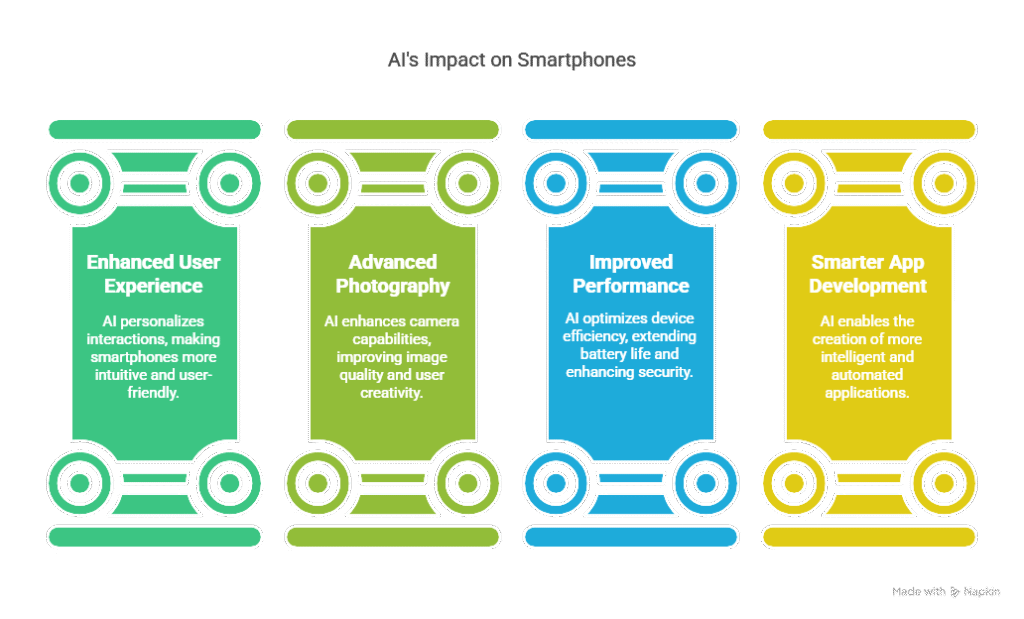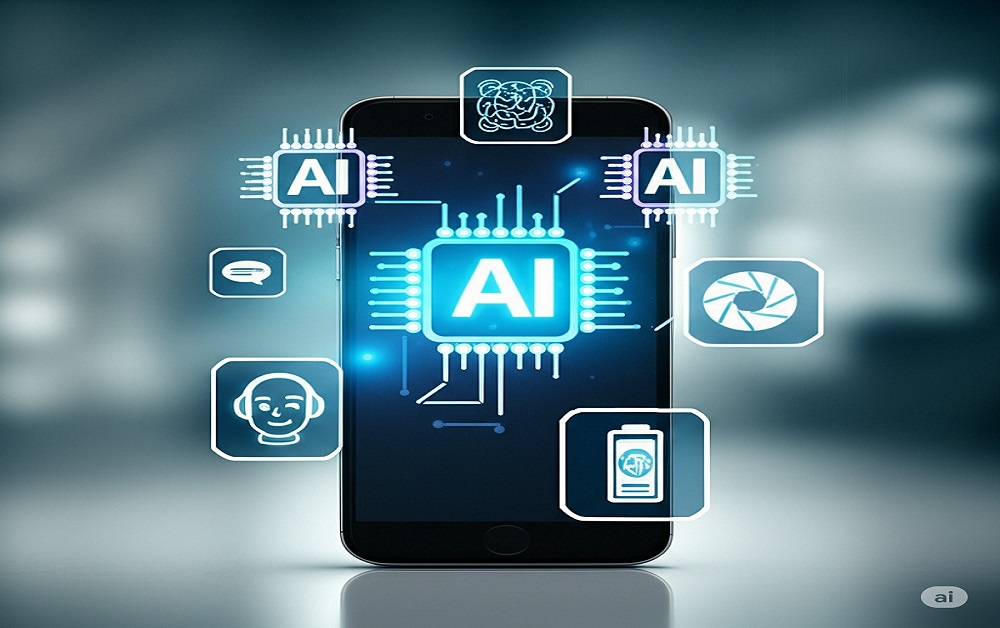The Future of AI in Smartphones: Smarter, Faster, and More Personal Than Ever
Artificial Intelligence (AI) has transcended its status as a mere buzzword to become the driving force behind exciting innovations in smartphones, already revolutionizing our interactions through features like personalized suggestions and real-time photo enhancements. As this integration deepens, the future promises significant advancements that will further redefine how we use our devices, enhancing both functionality and overall user experience, a journey this exploration will delve into, covering what’s current and what’s next.
📱 What is AI in Smartphones?
AI in smartphones refers to the use of machine learning algorithms, neural networks, and deep learning technologies to perform intelligent tasks. These include understanding user behavior, enhancing photography, managing battery efficiency, improving voice recognition, and more.
🔮 How AI is Evolving in Modern Smartphones
📸 1. AI-Enhanced Photography
The future of AI in smartphones will significantly impact photography. AI algorithms are already being used to enhance image quality, but future advancements will take this to the next level. Features such as scene recognition, automatic adjustments, and real-time enhancements will allow users to capture stunning photos effortlessly.
🔍 How It Works:
- Scene recognition adjusts brightness, contrast, and saturation.
- AI removes blemishes in portraits and enhances clarity in low-light.
- AI video stabilization provides smooth cinematic shots without a gimbal.
💡 Future Trends:
- Generative AI tools for background editing.
- Live object removal or insertion.
- AI-generated creative modes (e.g., AI-style filters).

🤖 2. On-Device Generative AI Features
With chips like Qualcomm’s Snapdragon 8 Gen 3 and Google’s Tensor G3, phones can now process AI tasks locally.
📍 Benefits of On-Device AI:
- Faster response times.
- Greater privacy and security (no cloud dependency).
- Offline access to AI tools.
🧠 Examples of What’s Coming:
- Real-time transcription and summarization of audio.
- AI Chat Assistants embedded into keyboard apps.
- Smart replies that adapt to tone and context.
🔋 3. AI for Battery Optimization
AI learns user behavior and optimizes background processes, app usage, and charging patterns to extend battery life.
🔌 Future Improvements:
- AI predicting your next charge time.
- Automatically enabling power-saving features based on your calendar or location.
- AI-assisted wireless charging calibration.

🎙️ 4. AI Voice Assistants: Getting More Human-Like
Voice assistants like Google Assistant, Siri, and Alexa are becoming more conversational thanks to natural language processing (NLP) and machine learning.
🚀 What’s Next:
- Multilingual real-time translation.
- Deeper integration with third-party apps.
- Emotion and tone detection for more personalized responses.
🧩 Future Applications of AI in Smartphones
🛠️ 1. AI in Mobile Security
- Face unlock and fingerprint recognition becoming smarter and faster.
- Behavioral authentication: AI will identify the user based on how they hold or interact with the phone.
🧬 2. Personalized UI & UX
- Dynamic themes and layouts that change based on user mood or usage patterns.
- App suggestions not just by frequency, but by time, emotion, or environment.
🗂️ 3. AI-Powered Search & Organization
- AI will intelligently organize your photos, files, and messages.
- Search anything in your gallery by description: “photo with red car at beach”.
🚀 The Role of AI Chips and NPU
Smartphone processors are now designed with dedicated AI engines called NPUs (Neural Processing Units). These chips allow phones to perform complex AI computations on-device.
⚙️ Leading AI Mobile Chips:
- Snapdragon 8 Gen 3
- Apple A18 Bionic
- Google Tensor G3
- MediaTek Dimensity 9300
As NPUs become more powerful, AI features will become faster, more advanced, and consume less power.
📉 Potential Challenges of AI in Smartphones
While the future of AI in smartphones is exciting, it also raises some concerns:
- Privacy: More personal data is processed than ever before.
- Misinformation: Generative AI could produce fake images or content.
- Dependence: Users may become overly reliant on AI for decisions.
Regulation and ethical development will be crucial to ensure these innovations are safe and beneficial.

🏁 Conclusion: A Smarter Tomorrow in Your Pocket
The future of AI in smartphones is not just about more features—it’s about intelligence that adapts to you, understands you, and helps you navigate life more efficiently. As AI continues to evolve, your smartphone could become your most trusted digital companion, capable of learning, adapting, and even creating.
From AI cameras that rival DSLRs to assistants that understand your tone, AI is reshaping the smartphone experience, and we’re just getting started.

